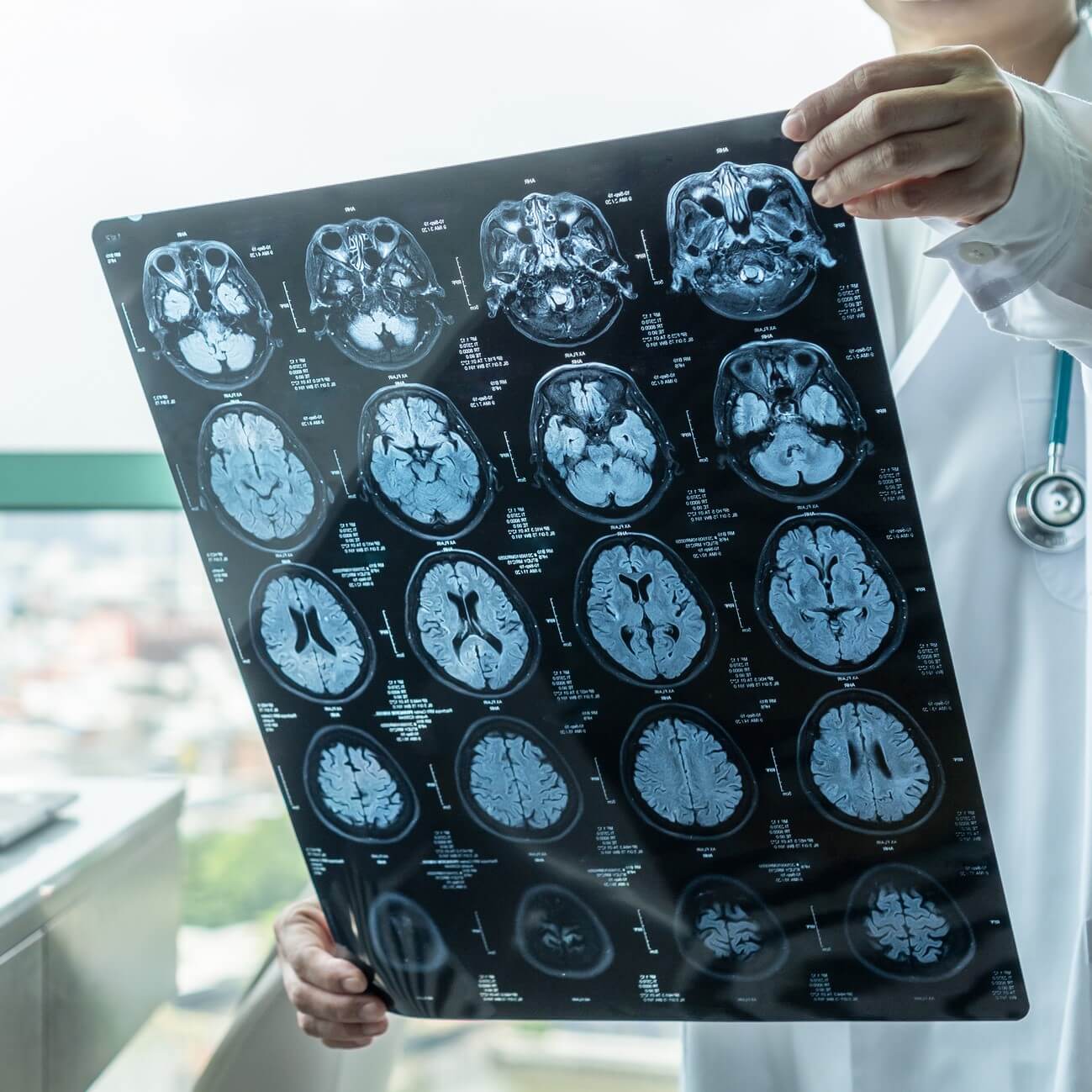If a person has been in a car accident, visible wounds are not the only sign that they’ve sustained. While broken bones, lacerations, burn injuries, and other physical injuries can be seen and felt immediately, some of the most serious injuries car accident survivors can sustain are not always immediately obvious.
A traumatic brain injury (TBI) can occur when the head is impacted with a significant amount of force, such as the amount that car accident survivors experience. However, something doesn’t have to strike a person’s head to cause them to sustain a TBI. A person can suffer from a TBI if their head is jolted with enough force during an accident. For example, if a person experiences whiplash during their accident, their brain could have had enough force exerted on it to be injured even if their head did not make any contact with another object.
How to Tell If Someone Might Have a TBI
When a person suffers from a traumatic brain injury it’s crucial for them to receive medical care as soon as possible. Even if someone only suspects that they have a TBI, they should see a doctor as soon as possible. Importantly, a person might not show signs of their brain injury until days after their car accident. Brain injuries can cause a person to exhibit a wide range of side effects, so it’s important to be aware of the common signs a person exhibits when they have one.
According to the Mayo Clinic, signs of a mild TBI include the following:
- Loss of consciousness for a few seconds to a few minutes
- No loss of consciousness, but a state of being dazed, confused or disoriented
- Headache
- Nausea or vomiting
- Fatigue or drowsiness
- Problems with speech
- Difficulty sleeping
- Sleeping more than usual
- Dizziness or loss of balance
- Loss of coordination
- Blurred vision
- Ringing in ears
- Strange tastes
- Altered sense of smell
- Concentration issues
- Memory deficiencies
- Depression or anxiety
After an accident, a person might feel as though they are lucky to have gotten away with no physical injuries. However, they might not associate the signs listed above with their injury if they take longer to appear. In some instances, the occurrence of a severe TBI is much more obvious than the sometimes-subtle manifestations of a minor one.
In addition to the symptoms above, the Mayo Clinic lists the following as signs of a moderate to severe TBI:
- Loss of consciousness
- Headaches
- Recurring vomiting and nausea
- Seizures
- Dilated pupils
- Clear fluids coming from the nose or eyes
- Loss of coordination
- Numb fingers and toes
- Weakness
- Confusion
- Agitation
- Slurred speech
- Coma
Why Is It Important to Identify a TBI as Soon as Possible?
Even if a person has sustained a minor brain injury from a car accident, recognizing it immediately can help them receive the compensation that they need for medical care. The longer a person’s injuries are diagnosed after an accident, the harder it might be to connect them to their car accident. Having injuries documented by a medical professional soon after an accident means creating a credible link between the injury and the accident.
If a brain injury is not recognized after an accident, a person might find themselves struggling to receive the care they need for the long-term complications of a TBI. Some research has even found a link between TBIs and degenerative brain diseases such as Alzheimer’s disease, Parkinson’s disease, and dementia.
Complications of a TBI include the following:
- Fluid buildup in the brain
- Infections
- Strokes
- Blood clots
- Headaches
- Vertigo
- Cognitive issues
- Communication problems
- Behavioral changes
- Emotional changes
- Social struggles
When a person’s negligence causes another person to sustain a TBI from a car accident, they should be held accountable for their behavior. Recognizing symptoms early helps a person identify their car accident as the source of their TBI. Once an injury is established medically, they’ll be able to strengthen any personal injury claim they make against the other party.
Side Impact Car Accidents & Brain Injuries
Researchers at the University of Rochester advocated for changes in car designs that would make the sides of cars as safe as the front of cars to protect occupants during a side impact car accident. A study conducted by researchers at the University of Rochester found that occupants in vehicles involved in side-impact car accidents were three times more likely to suffer a traumatic brain injury compared with people in other types of collisions.
Other key factors from the report include:
Traumatic brain injury resulted in death in 51 to 74 percent of single-vehicle side impact car accidents and 41 to 64 percent of multiple vehicle side impact car accidents.
Better head protection could reduce the number of fatal or critical brain injuries in side-impact car accidents.
Females are more likely to suffer a TBI in side-impact car accidents than men due to men having more neck strength.
Brain injuries sustained in side-impact car accidents tend to be more severe than other types of collisions.
Almost 10,000 people are killed each year in side-impact car accidents.
Because the risk of traumatic brain injury is higher in side-impact car accidents, researchers suggested that emergency medical personnel and doctors should be aware of the problem so that they can check for brain injuries even if no symptoms are present. If you or a family member is involved in a side impact car crash, it is in your best interest to insist doctors check for brain trauma.
Are Children At A Higher Risk?
Yes, children are at a higher risk of serious injury in a side impact car crash than in other types of crashes according to the research by the Association for the Advancement of Automotive Medicine. Research found that children between the ages of five and nine receive moderate injuries in side-impact car accidents compared to only 15 percent in front impact crashes and only three percent in rear-end crashes.
When children are in the vehicle during side impact car accidents, the research revealed:
17% of the children sustained abdominal injuries
22% of the children sustained an injury to one or more extremities
23% of the children sustained a significant impact related injury
39% of the children sustained a head injury
It is important for parents to seek immediate medical attention for their child in the event of a car crash. However, in side impact car accidents, parents should insist doctors perform thorough medical examinations and diagnostic tests to identify all injuries so treatment can begin as soon as possible. The quicker an injury is diagnosed, the quicker treatment can begin to prevent further injury and improve the prognosis.
HHR Helps Clients Receive the Compensation They Need for Care After a Brain Injury
At Handler, Henning & Rosenberg LLC, our brain injury lawyers are dedicated to helping clients recover after they’ve suffered from serious car accidents. We know that no one deserves to suffer because of the reckless behavior of others, and we fight to hold negligent drivers accountable for their actions. Our team has helped clients recover by never settling for less than they deserve. If the other side refuses to settle fairly, we won’t hesitate to fight for the results our clients need in court.
Call our brain injury lawyers today at (888) 498-3023 for a free consultation. We’re ready to hear your story and help you determine what to do next.


